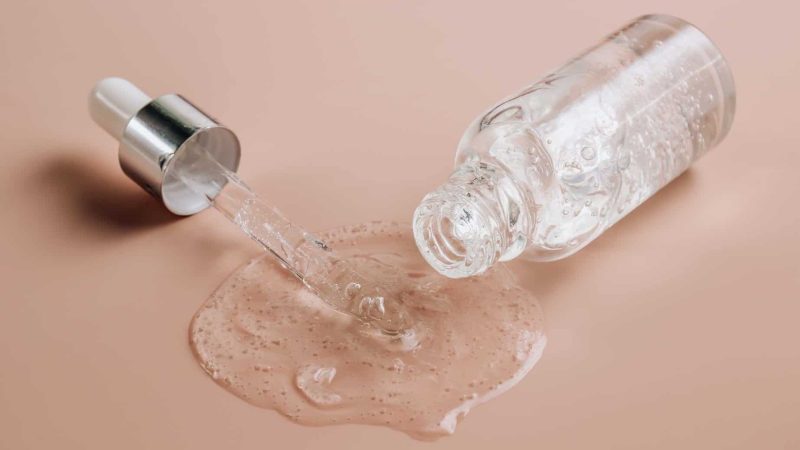What’s Hyaluronic Acid?
Hyaluronic acid (HA) is a naturally occurring glycosaminoglycan found throughout the body’s connective tissue. Glycosaminoglycans are simply long unbranched carbohydrates, or sugars, called polysaccharides.
Hyaluronic acid is the main component of what gives your skin structure, and is responsible for that plump and hydrated look. You may have heard the chatter around collagen, but hyaluronic acid is where it’s at.
With the buzz around anti-aging, it’s about time we talk about hyaluronic acid, its benefits for our skin, and side effects. It plays a pivotal role in the wound healing process and decreases as we age making us more susceptible to sagging and wrinkles.
Hyaluronic acid, a skin-care ingredient commonly found in your favorite serums, sheet masks, and moisturizers, is an important addition to your daily skin-care regimen. That’s because hyaluronic acid, a molecule that occurs naturally in the skin, binds to water to plump up your skin and give it that dewy and glowy effect..
What Are The Benefits Of Hyaluronic Acid?
Hyaluronic acid supplements can help increase skin moisture and reduce the appearance of fine lines and wrinkles. Topical treatments can soothe redness and dermatitis, while injections can make skin appear firmer.
Other benefits include:
- anti-aging
- moisturizing
- wound healing
- anti-wrinkle
- increases skin elasticity
- can treat eczema
- can treat facial redness.
Are There Side Effects To Using Hyaluronic Acid?
Hyaluronic acid is generally safe for all skin types and doesn’t typically lead to any adverse reactions when applied topically. Hyaluronic acid is a natural substance in our skin, and as a result one should not expect any problems.
When patients complain of rashes or other problems related to hyaluronic acid–containing products, it is often because of a problem with another ingredient, such as one of the preservatives. Preservatives extend the life of a product, but some, including, can lead to irritation.
Hyaluronic acid is also found in a large number of injectable fillers, and while the ingredient itself is safe, the procedure can be risky and should be performed by a doctor certified by the American Board of Dermatology or the American Board of Plastic Surgery.

